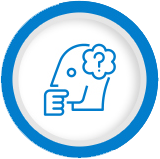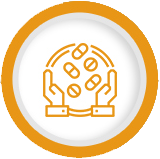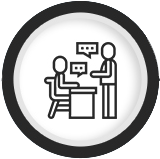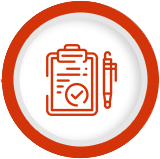Prescription Drugs & Mental Health
What Are Prescription Drugs?
Over-the-counter (OTC) drugs on the other hand, can be obtained without a prescription. They are used where the condition does not demand oversight from a healthcare professional, as long as the drug’s safety standards for self-medication have been met. When a drug is freely accessible, there is greater room for misuse.
The term prescription drug means different things in different territories. Prescription drugs usually have a monograph. In Europe, they are dispensed with an accompanying Patient Information Leaflet (PIL) that details the drug constitution, dosage information, and any notes on clinical trials and side effects. In North America, Rx is used to mark prescription medicines.
Prescription drug use has been on the increase since the 1960s. 88% of those aged 62-85 in the US use at least one prescription drug, with 36% taking at least 5 prescription medicines simultaneously.

Are Prescription Drugs Addictive?

More statistics from the Partnership for a Drug-Free World reveal 15 million individuals lapse into prescription drug addiction each year. 52 million have also abused prescription drugs at least once, with 6.5 million in a recent one-month period.
There is an interesting rise in prescription medicine abuse or misuse, leading to more admissions to treatment programmes for drug admissions. Abusing prescription drugs, raises the risk of addiction. Such drugs include opioid pain relievers, benzodiazepines for anxiety and sleep disorders, and stimulants for treating ADHD.
The rising availability of prescription drugs, coupled with relentless smart marketing by drug conglomerates, has contributed to the problem. Many drugs harbour the potential to be physically or psychologically addictive. Sedative medications can be life-threatening where withdrawal is attempted without sufficient control and oversight.
Addictive drugs can hijack the brain’s normal system of motivation by building up neurotransmitters in the brain and spinal cord. They generally increase dopamine signalling in the brain’s reward circuitry, sparking a reinforcement reward signal for activities that harm rather than benefit the person.
- none Easy
- none Confidential
- none Lifetime Support
How to Treat Prescription Drug Addiction?
Prescription drug disorders are essentially substance use disorders – brain disorders that can be treated. Treatment must be within the context of the drug type, used and the specific physiological and psychological needs of the individual.
Successful treatment of prescription drug addiction will most likely be integrated and holistic, incorporating detoxification, counselling, and medication components as required. The patient may need several courses of treatment, to make a full recovery.
Drug use disorder treatment has two components – behavioural and medications. The behavioural elements include contingency management and cognitive behavioural therapy (CBT). They help patients stop drug use by altering unhealthy thought and behavioural patterns, and teaching strategies, to manage cravings and avoid cues and situations that could spark a relapse. They will highlight the benefits of abstinence and help to create a mental framework, for improved decision making.

Behavioural treatments could take the form of individual, family, or group counselling. They can help improve patients’ personal relationships and their capacity to function, within their community or at work.
Prescription opioid addiction can be treated with medications like buprenorphin, methadone, and naltrexone. These drugs prevent other opioids, from impacting the brain (naltrexone), help the patient avoid relapse, and relieve withdrawal symptoms and cravings (buprenorphin and methadone).
Medications used for the treating opioid addiction are often administered in an integrated regime, with psychosocial support and behavioural treatments. These are called medication-assisted treatments (MAT). Withdrawal symptoms can be mitigated using lofexidine.

Addiction to Prescription Drugs
What exactly does addiction to prescription drugs involve? It is the uncontrollable use of a prescription medicine in a manner not prescribed by a prescribing doctor. Prescription drug use – problematic use – includes taking someone else’s painkillers for your slight headache, to snorting or injecting pills to experience a state of euphoria. Drug abuse may become ongoing and compulsive, regardless of the potentially deadly consequences.
Prescription drug addiction affects all age groups. The most abused drug classes include opioid painkillers, stimulants, sedatives, and anti-anxiety medications. Each drug class comes with specific signs and symptoms.
Addiction to Antidepressants
Antidepressants are not addictive in the manner of substances like heroin, or even alcohol. Abuse of antidepressants does not lead to cravings in its patients. Antidepressant dependence can crystallise in people, who in the first place never needed the drugs. Incorrect diagnosis of patients reporting with depression leads to two-thirds being prescribed, unneeded antidepressants.
The addictive nature of antidepressants remains a debate. They help many people lead better lives, but the intense withdrawal symptoms (includes depression), can be unbearable. Unable to get anyone high makes many believe that higher doses would induce euphoria, since a smaller dose improved their mood.
Sadly, antidepressants accumulate in the brain, eventually manifesting as irregular heartbeat, mental impairment – impaired coordination, fainting, confusion, and uncontrollable shaking. Of 1892 psychiatric patients surveyed in Liverpool, England, thoughts of suicide, emotional numbness, and sexual dysfunction affected more than 50%.

The results of the study showed more than half of people between 18 and 25, reported suicidal feelings. The total sample had large percentages of people enduring “sexual difficulties” (62%) and ‘”feeling emotionally numb” (60%). Other effects had similar percentages: “feeling not like myself” (52%), “reduction in positive feelings” (42%), “caring less about others” (39%) and “withdrawal effects” (55%). Yet, the report concludes, “82% reported that the drugs had helped alleviate their depression.”
Addiction is a devastating illness which can put all your relationships and your career in chaos. To help you recover and enjoy life again, we strive to heal both you and your relationships. Call us now to begin the road to recovery today!
Get Help Immediatley, Call Now!

Addiction to Antipsychotics
Antipsychotic medications can reduce symptoms of psychosis. These symptoms include delusions and hallucinations. Formerly called major tranquilizers and neuroleptics, antipsychotics are drugs mainly used to treat schizophrenic patients. Bipolar disorder, depression and Alzheimer’s patients can also benefit from using antipsychotics. They also stabilise moods in bipolar disorder and reduce anxiety and tics in anxiety disorders, and tics respectively.
In general, antipsychhotics enhance cognitive function, diminish hallucinations or delusions and check suicide risk. Antipsychotic medications are often used for dual diagnosis prognosis of addictions and mood disorders in drug rehab facilities.
While able to control symptoms, antipsychotics do not cure the base condition. They can work within a few hours, but require between four to six weeks, to reach their full effect. They merely aim to check symptoms, while stemming side effects as much as possible.
With respect to addiction, addictive drugs often produce a feeling of euphoria, a defiant desire to continue using the drug, and a need to up the amount needed, to achieve the effect. Antipsychotics do not have such effects. What they have in common with other addictive drugs is they cause withdrawal symptoms when you stop them.
These withdrawal effects are worse, if the individual stops suddenly. There will be any combination of nausea, vomiting, dizziness, shaking, diarrhoea and stomach pain. Cutting back gradually rather than stopping abruptly, is more potent in dealing with withdrawal effects.
Addiction to Sleeping Pills
According to the Economic and Social Research Council, one in ten people in the UK now rely on some form of sleeping pills. Sleep medication saw 15.3 million NHS prescriptions in 2011. 2.8 million Prescriptions for temazepam and 5.4 million for zopiclone, were received by patients in England alone. These are the two most popular sleeping pills.
Kevin Morgan, a University of Loughborough professor of gerontology and a leading authority on sleep, firmly believes sleeping pills are not a panacea and medical staff should be trained, to incorporate psychological therapy like cognitive behavioural therapy (CBT), to help cases of insomnia. He argues that CBT is a superior long-term solution, citing the dangers of sleeping pills – addiction (dependency), accidents due to medication, and rising costs for health services.
People deem sleeping pills as necessary, when they become restless – a University of California scan research shows the amygdala (brain area responsible for emotional response) overreacts in the face of disturbing or upsetting images. This emotional stress easily translates to physical stress.

Sleeping pills are hypnotic or soporific drugs, with close relationship to sedatives. They typically effect brain chemistry being central nervous system depressants, and their dosage often influences their potency. There are withdrawal symptoms, associated with sleeping pill use and there are mental health implications, considering that they work on the brain.
Large doses of sleeping pills are often implicated in cases of suicide or loss of consciousness. Similar signs to alcohol inebriation include uncoordinated movements, slurred or incoherent speech, issues with recall, issues with arithmetic, and other display of cognitive impairment. This is in addition to inappropriate bursts of laughter or euphoria, and an inability to focus visually. These are signs mental situations that an addiction to sleeping pills can elicit.

Prescription Medications for Mental Disorders
Mental disorders encompass a range of mental health conditions – illnesses that affect the individual’s mood, behaviour, and thinking. Examples of mental illness include anxiety disorders, schizophrenia, depression, eating disorders, and addictive behaviours.
Mental illness can make one miserable and cause problems in daily life and relationships. Most times, symptoms can be managed, with a combination of medications and talk therapy – psychotherapy.
Symptoms and signs of mental illness can vary, depending on the disorder, circumstances and other factors. Mental illness symptoms also emotions, thoughts and behaviours. Such signs and symptoms include:
- Confused thinking.
- Trouble comprehending situations.
- Diminished ability to concentrate.
- Alcohol or drug abuse.
- Extreme mood shifts (high and low).
- Major changes in eating habits.
- Excessive fear, worry, and feelings of guilt.
- Changes in sex drive.
- Withdrawal from activities and friends.
- Excessive anger and hostility.
- Detachment from reality.
- Suicidal thinking.
These symptoms clearly suggest that society must take metal illness seriously, and do whatever is possible to stem the tide. What role can prescription medicines play in this though?
Depression is often a stop-gap for full-blown mental illness. To treat depression, available prescription options commonly used include:
- SSRIs – selective serotonin reuptake inhibitors (SSRIs). Examples are escitalopram oxalate (Lexapro), citalopram (Celexa), fluoxetine (Prozac) and sertraline (Zoloft).
- SNRIs – selective serotonin & norepinephrine inhibitors (SNRIs), like venlafaxine (E fexor), and desvenlafaxine succinate (Pristiq).
- New serotonergic medication such as vilazodone (Viibryd) and vortioxetine (Trentellix – formerly called Brintellix).
Anxiety disorders can be handled with antidepressants (paroxetin or citaplopram) or benzodiapenes (if attack is acute). However, benzodiapenes cause drowsiness, dizziness, irritability, and physical dependence.
For PSTD – post-traumatic stress disorders – many patients take more opioids than necessary. Lexapro, effexor, zoloft concentrate, and celexa, have had good success in helping patients with the condition.
Bipolar disorder can be effectively tackled, using mood stabilisers like carbamazepine (Carbatrol), lamotrigine (Lamictal), lithium, and valproic acid (Depakene). The first three are called anticonvulsants. Mania medication include haloperidol (Haldol), loxapine (Loxitane), and risperidone (Risperdal). Newer antipsychotic drugs such as lurasidone and olanzapine may also be prescribed.
On completing treatment we offer lifetime support for your recovery.
Strict client confidentiality policy is in place.
Simply give us a call and we will guide you through the process.
FAQ
What drugs do psychiatrists prescribe?
Psychiatrists typically first assess mental and physical symptoms. They make a diagnosis and work with the individual, to develop a treatment plan. The drugs prescribed are often dependent on the peculiarity of the condition, but drug therapy is often complemented with neuropsychology techniques, like cognitive behavioural therapy. Drugs are not merely recommended because they usually have side effects and could easily lead to addiction.
What are some antipsychotic drugs?
Common neuroleptics (antipsychotic drugs) include asenapine (Saphris), cariprazine (Vraylar), clozapine (Clozaril), aripiprazole (Abilify), and ziprasidone (Geodon).
Why is medication important in mental health?
It is true that psychiatric drugs do not cure a mental health problem, but they often help to reduce the symptoms, keep them in check, and help the individual cope better. Medication is often dependent on diagnosis, symptoms, and the severity of the condition.
Can prescription drug abuse cause mental problems?
Yes. In fact many antipsychotics have been implicated in mental illness. More than that, there are significant overlaps, in the risk factors of prescription drug abuse and mental illness. These risk factors include epigenetics, trauma, and certain neurological deficit types, like lower-than-normal activity in certain brain circuits.
What are the mental effects of prescription drug abuse?
Drug abuse (prescription or otherwise) doubles the propensity of an individual to mood and anxiety disorders. In 2015, 43.4 million adults 18 years and older developed some form of mental illness. 8.1 million of these had both a substance use disorder, and another mental illness.





